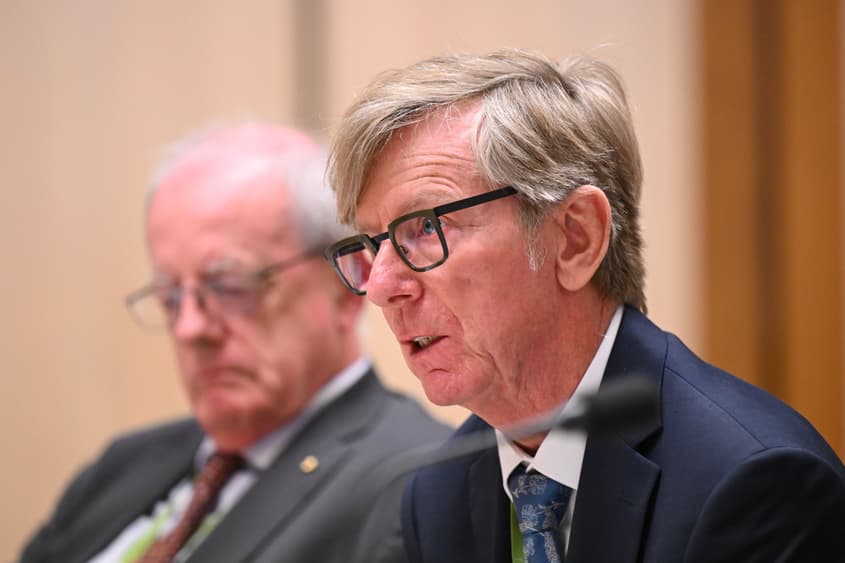This follows a series of scandals in the National Anti-Corruption Commission’s upper management.
Thu 27 Nov 2025 11.45

CEO of the National Anti-Corruption Commission (NACC) Philip Reed speaks during inquiry | Photo: AAP Image/Lukas Coch
The chief executive of Australia’s National Anti-Corruption Commission (NACC), Philip Reed, has written a letter to parliament apologising for giving inaccurate testimony to Senate Estimates.
This follows a series of scandals in the NACC’s upper management, including September’s revelation that chief commissioner Paul Brereton had continued to consult for his previous employer (the Inspector-General of the Australian Defence Force). That’s despite his $800,000 a year salary from the NACC.
In October, the NACC’s inspector also found that Mr. Brereton had engaged in misconduct by not recusing himself from the decision-making process on an investigation into the Robodebt scheme, despite declaring a “close association” with a person involved.
Despite the NACC being established less than three years ago, a steady flow of questionable decisions and scandals has eroded public confidence in its operations.
The Australia Institute, which campaigned for a decade to introduce a federal integrity commission, recommends five changes to make the NACC more effective and rebuild public confidence:
The NACC urgently needs to correct course, and implementing those recommendations would ensure it does so before going too far adrift.
In the meantime, Mr. Reed will face Senate Estimates again next week, and he’ll surely have to answer questions as to how and why he gave inaccurate testimony last time.
The rise of One Nation creates a surprising opportunity for progressive voters. There are now “safe” Liberal and National seats where One Nation could do very well.